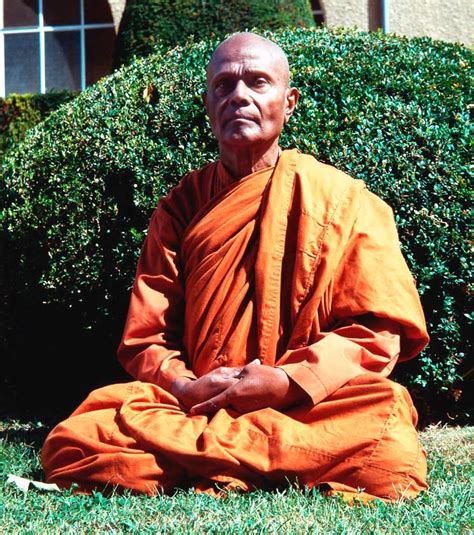Top 1200 Compassion For Others Quotes & Sayings
Explore popular Compassion For Others quotes.
Last updated on April 14, 2025.
The first beneficiary of compassion is always oneself. When compassion, or warmheartedness, arises in us and our focus shifts away from our own narrow self-interest, it is as if we open an inner door. It reduces fear, boosts confidence and brings us inner strength. By reducing distrust, it opens us to others and brings us a sense of connection to others, and sense of purpose and meaning in life.
The essence of love and compassion is understanding, the ability to recognize the physical, material, and psychological suffering of others, to put ourselves "inside the skin" of the other. We "go inside" their body, feelings, and mental formations, and witness for ourselves their suffering. Shallow observation as an outsider is not enough to see their suffering. We must become one with the subject of our observation. When we are in contact with another's suffering, a feeling of compassion is born in us. Compassion means, literally, "to suffer with."
When we endure our own tragedies or trials, most of us develop some empathy and compassion for others who are suffering. The trick is to keep that sense of compassion going throughout our daily lives, when we are likely to go on automatic pilot and move back into being judgmental, especially when times are tough.
There is a common perception that compassion is, if not actually an impediment, at least irrelevant to professional life. Personally, I would argue that not only is it relevant, but that when compassion is lacking, our activities are in danger of becoming destructive. This is because when we ignore the question of the impact our actions have on others' well-being, inevitably we end up hurting them.
Invoke the Mercy of God and as milk returns not to the udder go not back to your wrongdoing." "Have compassion on yourself and on others and Infinite Compassion will be given to you." "In the name of Allah, All-Merciful, All Compassionate, bestow on me a Mercy that shall put me beyond the need of mercy from any other than Thee.
There are two types of compassion. One - is faint-hearted and sentimental. Actually, it is nothing more than impatience of the heart, that is hurrying to get rid of that hard feeling when you see other peoples' sufferings; this is not a compassion, but just an instinct will to defence yourself from misfortunes of others. But there is another compassion - real one, that demands for actions, not sentiments, it knows what it wants, and it is full of determination to do everything, what is in human power and even beyond it.
Children, don't waste a single second.
Serve others, above all the poor,
expecting nothing in return.
Just as the person who offers God flowers
is the first to enjoy their fragrance,
the person who offers compassion
is the first to receive its blessing.
Wherever a heart beats
with compassion:
God is there.
Compassion- which means, literally, "to suffer with"- is the way to the truth that we are most ourselves, not when we differ from others, but when we are the same. Indeed the main spiritual question is not, "What difference do you make?" but "What do you have in common?" It is not "excelling" but "serving" that makes us most human. It is not proving ourselves to be better than others but confessing to be just like others that is the way to healing and reconciliation.
A man of understanding, a man who understands himself and others, always feels compassion. Even if somebody is an enemy you have compassion toward him because a man of understanding can understand the viewpoint of the other also. He knows why the other feels as he feels, he knows why the other is angry, because he knows his own self, and in knowing that, he has known all others.
As Gandhi wisely points out, even as we serve others we are working on ourselves; every act, every word, every gesture of genuine compassion naturally nourishes our own hearts as well. It is not a question of who is healed first. When we attend to ourselves with compassion and mercy, more healing is made available for others. And when we serve others with an open and generous heart, great healing comes to us.
Let us cultivate love and compassion, both of which give life true meaning. This is the religion I preach. It is simple. Its temple is the heart. Its teaching is love and compassion. Its moral values are loving and respecting others, whoever they may be. Whether one is a lay person or a monastic, we have no other option if we wish to survive in this world.
To the extent that our experience of suffering reminds us of what everyone else also endures, it serves as a powerful inspiration to practice compassion and avoid causing others pain. And to the extent that suffering awakens our empathy and causes us to connect with others, it serves as the basis of compassion and love.
To possess both wisdom and compassion is the heart of our human revolution. If you have wisdom alone and lack compassion, it will be a cold, perverse wisdom. If you have compassion alone and lack wisdom, you cannot give happiness to others. You are even likely to lead them in the wrong direction, and you won't be able to achieve your own happiness.
The nectar of compassion is so wonderful. If you are committed to keeping it alive, then you are protected. What the other person says will not touch off the anger and irritation in you, because compassion is the real antidote to anger. Nothing can heal anger except compassion. That is why the practice of compassion is a very wonderful practice.
Only when all your desires disappear does that energy become compassion, KARUNA. You cannot cultivate compassion. When you are desireless, compassion happens; your whole energy moves into compassion. And this movement is very different. Desire has a motivation in it, a goal; compassion is nonmotivated, there is no goal to it, it is simply overflowing energy.
It’s in our interest to take care of others. Self-centrednes s is opposed to basic human nature. In our own interest as human beings we need to pay attention to our inner values. Sometimes people think compassion is only of help to others, while we get no benefit. This is a mistake. When you concern yourself with others, you naturally develop a sense of self-confidence . To help others takes courage and inner strength.
Compassion, however, should mean providing a mechanism to escape poverty rather than simply maintaining people in an impoverished state by supplying handouts. By doing this we give them an opportunity to elevate their personal situations, which eventually decreases our need to take care of them and empowers them to be able to exercise compassion toward others.
The wisdom that comes from having experienced heartbreak cannot be bequeathed; it can only be gained through experience. And having truly felt it, we are far more likely to have compassion for others. Anything that takes us close to true compassion takes us closer to what will one day be an experience of even greater joy.
Foolish, selfish people are always thinking of themselves and the result is always negative. Wise persons think of others, helping them as much as they can, and the result is happiness. Love and compassion are beneficial both for you and others. Through your kindness to others, your mind and heart will open to peace.
If we begin to get in touch with whatever we feel with some kind of kindness, our protective shells will melt, and we'll find that more areas of our lives are workable. AS we learn to have compassion for ourselves, the circle of compassion for others-what and whom we can work with, and how-becomes wider.
Compassion has nothing to do with achievement at all. It is spacious and very generous. When a person develops real compassion, he is uncertain whether he is being generous to others or to himself because compassion is enviromental generosity, without direction, without " for me" and without " for them". It is filled with joy, spontaneously existing joy, constant joy in the sense of trust, in the sense that joy contains tremendous wealth, richness.
Compassion does not just happen. Pity does, but compassion is not pity. It's not a feeling. Compassion is a viewpoint, a way of life, a perspective, a habit that becomes a discipline - and more than anything else, compassion is a choice we make that love is more important than comfort or convenience.

































